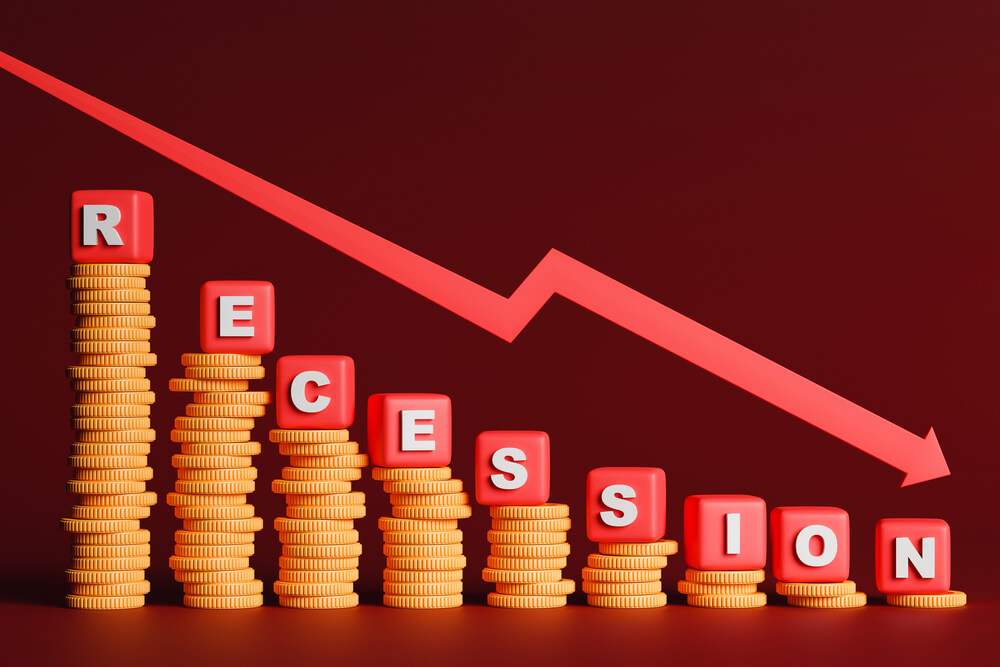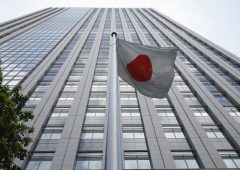USA is Dodging Bullets With the Recession, but for How Long?
09.08.2024 9:00 2 min. read Alexander Stefanov
Concerns about a potential US recession have intensified following a global stock market drop and a weaker-than-expected jobs report.
Concerns over a potential US recession are resurfacing as investors react to a recent global stock market decline. The sell-off, which began last Friday, has been fueled by apprehensions about the state of the American economy, exacerbated by a disappointing jobs report.
Stock values have plummeted, with many blaming the US Federal Reserve for maintaining high interest rates, which are currently between 5.25% and 5.5%, despite signs of economic cooling.
However, experts suggest that a “soft landing” might still be achievable. This scenario would allow inflation to decrease towards the Fed’s 2% target without causing a severe rise in unemployment.
Jason Furman, a Harvard professor and former White House economist, argues that most economic indicators are still showing growth. He believes that predictions of an imminent recession may be overstated.
The latest jobs report showed a continued increase in unemployment, now at 4.3%, marking the fourth consecutive month of rising jobless rates. Additionally, weak performance from major companies like McDonald’s and Diageo indicates declining consumer confidence.
Despite this, some economists remain optimistic. Ernie Tedeschi, a former chief economist with the White House Council of Economic Advisors, suggests that the job growth figure of 114,000 is sufficient to meet labor supply needs and doesn’t necessarily indicate a downturn.
The Federal Reserve is facing pressure to lower interest rates in its upcoming September meeting, with expectations now leaning towards multiple rate cuts this year. Yet, the Fed remains cautious.
San Francisco Fed President Mary Daly and other officials believe there is still confidence that the economy is slowing but not collapsing. They emphasize that the current unemployment rate is relatively low compared to historical norms.
Although concerns about rising delinquency rates on car loans and credit cards exist, they are not yet at crisis levels seen in the 2008 financial downturn.
As the US navigates these turbulent economic waters, it remains uncertain whether a recession can be avoided entirely, but current data suggests that a full-blown economic collapse may not be imminent.
-
1
Russia’s Oil Revenues Strained as Exports Decline Again
24.06.2025 18:00 2 min. read -
2
Recession Fears Linger as Economic Signal Flashes Long-Term Warning
25.06.2025 9:00 2 min. read -
3
Robert Kiyosaki Predicts When The Price of Silver Will Explode
28.06.2025 16:30 2 min. read -
4
Trump Targets Powell as Fed Holds Rates: Who Could Replace Him?
27.06.2025 9:00 2 min. read -
5
U.S. PCE Inflation Rises for First Time Since February, Fed Rate Cut Likely Delayed
27.06.2025 18:00 1 min. read
Coinbase Strengthens DeFi Push With Opyn Leadership Acquisition
Coinbase has taken a major step toward expanding its decentralized finance (DeFi) presence by bringing onboard the leadership team behind Opyn Markets, a prominent name in the DeFi derivatives space.
Grayscale Urges SEC to Allow Multi-Crypto ETF to Proceed
Grayscale Investments has called on the U.S. Securities and Exchange Commission (SEC) to allow the launch of its multi-crypto ETF—the Grayscale Digital Large Cap Fund—arguing that further delays violate statutory deadlines and harm investors.
Robinhood Launches Ethereum and Solana Staking for U.S. Users
Robinhood has officially introduced Ethereum (ETH) and Solana (SOL) staking services for its U.S. customers, offering a new way for users to earn rewards on their crypto holdings.
Binance CEO Reveals What’s Fueling the Next Global Crypto Boom
Binance CEO Richard Teng shared an optimistic outlook on the future of cryptocurrencies during an appearance on Mornings with Maria, highlighting growing global acceptance, regulatory progress, and strategic reserve integration.
-
1
Russia’s Oil Revenues Strained as Exports Decline Again
24.06.2025 18:00 2 min. read -
2
Recession Fears Linger as Economic Signal Flashes Long-Term Warning
25.06.2025 9:00 2 min. read -
3
Robert Kiyosaki Predicts When The Price of Silver Will Explode
28.06.2025 16:30 2 min. read -
4
Trump Targets Powell as Fed Holds Rates: Who Could Replace Him?
27.06.2025 9:00 2 min. read -
5
U.S. PCE Inflation Rises for First Time Since February, Fed Rate Cut Likely Delayed
27.06.2025 18:00 1 min. read



